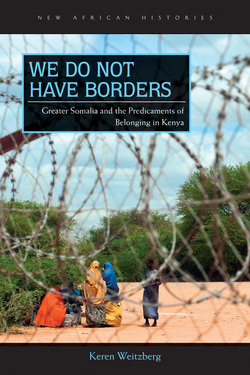We Do Not Have Borders

Реклама. ООО «ЛитРес», ИНН: 7719571260.
Оглавление
Keren Weitzberg. We Do Not Have Borders
Отрывок из книги
We Do Not Have Borders
SERIES EDITORS: JEAN ALLMAN, ALLEN ISAACMAN, AND DEREK R. PETERSON
.....
Conducting oral history was also challenging because the past was a highly emotive topic for many people. After independence in 1963, Somalis endured significant trauma at the hands of Kenyan officials, who often acted with the tacit and sometimes explicit support of the British and the US governments. Many were eager to speak to me about these painful memories of state violence and repression. Though some were suspicious of my intentions or simply unwilling to revive such painful memories, others saw me as a potential mouthpiece for highlighting their stories of suffering and marginalization, or an advocate who could connect their stories to an international human rights agenda. Rather than simply “compiling a record of horror, a kind of case for the prosecution,” however, this book tries to uncover the logic that facilitated violence and made the relationship between Somalis and the Kenyan state so fraught and complicated.94 It focuses not simply on the ways in which people imagined community, but also on moments and gestures of antimembership, rejection, and refusal. This study traces the reasons why Somalis have come to hold such an enigmatic, liminal status within Kenya, where they are often regarded as both locals and foreigners, citizens and strangers.
In the late nineteenth century, imperial representatives had recognized that northern Kenya and southern Somalia were interconnected to a much broader regional and global economy. By the turn of the century, however, British officials had turned their attention to the construction of the Uganda-Mombasa railway farther south, which was completed in 1901. The IBEAC’s experience in Jubaland revealed the inviability of capturing pastoral trade networks as well as the challenges of seizing control over nomadic regions. Rather than attempt the task of redirecting capital flows or securing effective administration over the sparsely populated, arid northern expanse, the thinly staffed protectorate regime concentrated instead on halting the southward migration of the area’s armed, nomadic people into the fertile central highlands and Rift Valley, which soon became the focus of the government’s commercial interests.59
.....